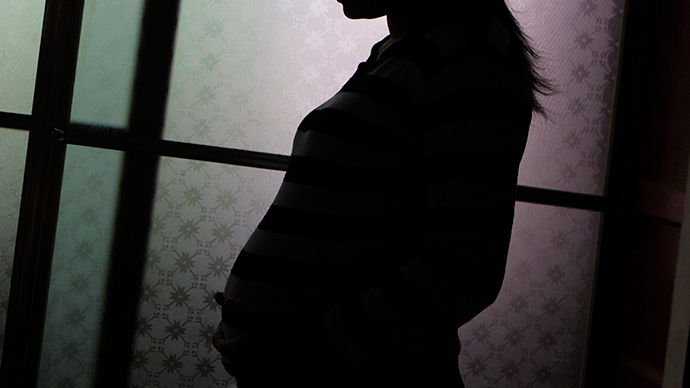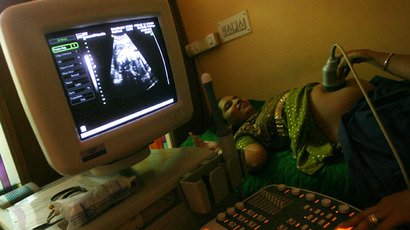Colorado drastically cuts teen pregnancies and abortions, yet legislature defunds program

A family planning program in Colorado that offers low-price long-term contraception cut teen pregnancy and abortion rates dramatically in the last five years. Yet the program is in jeopardy since legislators rejected to funding for it in place.
The Colorado Family Planning Initiative operated in the last five years with private grant funding supplied by the Susan Thompson Buffett Foundation, according to The New York Times. The program allowed teenagers and low-income women to acquire intrauterine devices (IUDs) and other types of long-acting reversible contraception (LARC) for free or at reduced rates.
Since 2009, more than 30,000 IUDs or other contraception devices were given out at 68 family planning clinics in Colorado, the state reported last year.
The program proved to be a major success in that, from 2009 to 2013, the birthrate for teenagers fell by 40 percent, according to the Colorado Department of Public Health and Environment. In addition, the teen abortion rate dropped 35 percent from 2009 to 2012. Similar reductions occurred among single women under the age of 25 who did not have a high school degree, the NYT reported.
READ MORE: Indiana woman first in nation to be convicted of feticide
The state estimated that it had saved more than $80 million in Medicaid expenditures thanks to the program, which ran out of funding on July 1. The state health department has also estimated that the initiative saved $5.85 in Medicaid costs for every dollar used to fund low-price contraception.
Yet despite the evidence of unprecedented success, conservative legislators balked when asked to provide $5 million to continue the program as is. In April, the Republican-controlled state Senate killed a funding bill, putting the program in limbo.
“It is disgraceful that Republican Colorado senators this session voted to leave low-income teenagers and young women without access to contraception that will help them achieve their goals and stay financially independent,” Cathy Alderman of Planned Parenthood Votes Colorado said on July 1, according to RHRealityCheck.org. “Funding for the program expired today—leaving a huge gap for hundreds of thousands of young women in Colorado.”
For folks that portend to care for a decreased abortion rate: giving women free IUDs actually works (in colorado)
— Sophia (@Sophiabiabia) July 6, 2015
Without additional funding for the program, the state health department said last week that it "will have to cut back on training for health care providers, operational assistance for family planning clinics and financial assistance for IUDs and implants."
“We are working closely with our partners who believe in this initiative to find the funding necessary to continue providing contraceptive choices to young women across Colorado,” added Dr. Larry Wolk, executive director and chief medical officer for the state health department.
In arguing against funds for the program, Colorado Republicans claimed -- despite the state's findings -- that IUD use led to increased abortions, that the Affordable Care Act, or Obamacare, would cover contraception costs, and that contraception access increased teen sex rates.
READ MORE: Arizona bill claims drug-induced abortion is 'reversible,' bans subsidies
Reproductive health advocates countered the charge that Obamacare would provide the kind of effective contraception that proved so successful amid Colorado's program.
While the Affordable Care Act technically requires insurers to cover all contraceptives, insurers are also allowed to push cost-saving "reasonable medical management," meaning "some women have to show that a less-expensive option, like the pill, has failed to prevent a pregnancy or has made them sick before the insurer will cover an implant or IUD,"according to the National Journal. Furthermore, teens are unlikely to opt for birth control if they must use their parents' insurance to access it, supporters of the LARC program say.
“What you might not know is that health insurance companies can refuse to cover contraceptive methods, such as IUDs and implants, because they are more expensive than other forms of contraception," said Adam Fox, a spokesperson for the Colorado Consumer Health Initiative, in April.
"An IUD can cost as much or more than a month’s worth of rent. That means that low-income women cannot access the most effective forms of reversible contraception. The [LARC] program provides access to these services and helps women afford any form of contraception they think is most appropriate for them."
Around half of the 6.6 million annual pregnancies in the US are unintended, according to the Guttmacher Institute.
“If we want to reduce poverty, one of the simplest, fastest and cheapest things we could do would be to make sure that as few people as possible become parents before they actually want to,” Isabel Sawhill, an economist with the Brookings Institution, told NYT. Her research has found that single parenthood is a leading cause of income inequality, an argument she made in her book "Generation Unbound: Drifting Into Sex and Parenthood Without Marriage."
Only about 7 percent of women in the US ages 15 to 44 used long-term birth control form 2011 to 2013, according to the US Centers for Disease Control and Prevention.














